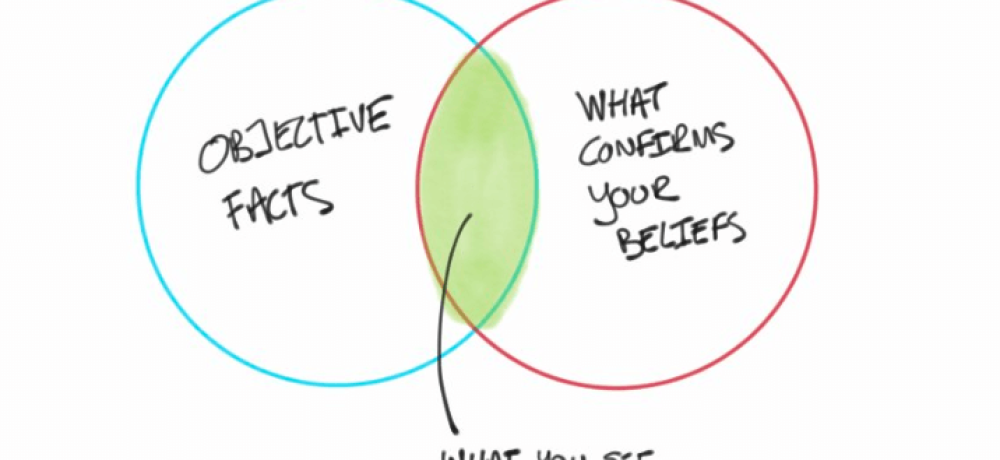
Decision-making in times of crisis: 3 cognitive biases that could cost you a fortune
Decision-making becomes even more essential in crisis. When you come across terms like the “one-and-a-half-meter economy”, it becomes clear that people are preparing for the next blow. Even though the coronavirus started as a humanitarian crisis, organizations around the world are now bracing themselves for the biggest economical breakdown since the second world war.
While company A is facing a business model shift, company B is considering a complete restructuring of their business whereas company C is already standing with their toes over the edge of the abyss. The effects of the crisis differ for everyone. But in making the right choices fast and adapting accordingly, we can identify one factor that is crucial for every leader and organization: clear decision-making.
Our energy saving brain costs us money. A lot of money.
Whenever we heavily rely on our rational thinking capacity, we tend to lose the capability to make rational decisions. There is an easy explanation for it though. Millions of years of evolution taught our brain to trust intuition in stressful, uncertain situations. After all, there was just no time for acting rationally when the saber-tooth tiger was chasing you down.
That’s why our brain still relies on all kinds of different energy-saving shortcuts when it makes decisions. Most likely you are already familiar with these so-called “cognitive biases”. Loss aversion, for example, is one of the biases that behavioral economists are fascinated by. This bias describes our disproportionate aversion towards loss when making decisions.
A typical Fortune 500 company loses around €225 million a year due to ineffective decision-making
There are more than 200 cognitive biases that influence our decision-making. Only recently we found out how much that actually costs us. A typical Fortune 500 loses around €225 million a year due to ineffective decision-making.
Three ways to improve your decision-making
The good news: you can actively avoid these biases. That is especially essential in times of (financial) stress and uncertainty. A decision-making process that systematically anticipates cognitive biases works the best here, but to give you a head start: These are the three most damaging cognitive biases in the coronavirus crisis and this is what you can do about it.
1. Ambiguity aversion: Difference between uncertainty, risk and ambiguity
Against popular belief, humans actually do not mind a little risk. As long as we can estimate the probabilities for either A or B occurring, we’ll manage. When the coronavirus crisis hit us however, we were completely in the dark about what was going to happen. Whenever we find ourselves in complete uncertainty about the future, we’re not just dealing with risk, but also with ambiguity.
Ambiguity accounts for a feeling of powerlessness which can lead to extreme inertia. We can clearly see this effect in the decision-making of organizations: Leaders constantly postpone making a decision as they wait for more information. But whenever the right information is finally available, it is too late for making a decision. Unfortunately, we often don’t recognize a downward spiral when we find ourselves right in the middle of it.
Risk, ambiguity and uncertainty also play a crucial part in the popular Black Swan Theory by Nassim Taleb. Simply said, this theory explains that large unexpected events are more rationally thought of in hindsight. But is the outburst of the coronavirus – as many experts say – really a Black Swan Event? That question deserves its own article.
Leaders constantly postpone making a decision as they
wait for more information, but whenever the right information is finally available, it is too late for making a decision.
What can you do about it?
To break out of this vicious circle you need clarity. The start of the coronavirus crisis was shaped by full ambiguity. Now however, one can sketch different scenarios that describe how the crisis might play out around the world. Creating these kinds of scenarios is a crucial step for organizations.
This can be as simple as a worst-case, best-case and in-between scenario with a plan of action for each of them. It is also important to determine criteria that help you identify scenarios early when they occur. That way you can bring ambiguity back to an estimated risk and create clarity, direction and a plan of action within the organization.
2. Confirmation bias: Facts are not facts for everyone
A characteristic of the corona-crisis is the lack of clear, coherent information. Especially these days false information and fake news can be damaging. The biggest problem however isn’t the quality of the information, but our perception of it.
The confirmation bias causes you to only be sensible to information that confirms your existing opinions and beliefs. So in the pool of information you are presented with, you only see the reflection of your own opinions. Therefore, the confirmation bias affects our capability to make a rational consideration.

What can you do about it?
Luckily there is a range of tactics to overcome the confirmation bias. Our suggestion concerns a variation of a popular leadership tactic: the pause – anticipate – assess – act cycle.
The moment that you notice any developments that might be relevant to your situation, take a short pause.
- Anticipate the decision by determining clear decision-making criteria (e.g. if A then X, if B then Y) before you take in new information.
- Only now you can process the information regarding new developments and assess new possibilities.
- Take action based on the presence/absence of the decision-making criteria.
3. Affect Heuristic: When the cortex is away, emotions will play
Our rational capacity tends to disappear under stress and uncertainty. Actually, this is precisely what happens on a physiological level. The activity in our prefrontal cortex – which is also the executive control center of our brain – quickly decreases in times of stress. Therefore, emotions, gut feelings and impulses get free play.
The affect heuristic is the bias that causes us to make decisions based on gut feelings instead of rational thinking. This bias is relevant on every level within and outside of organizations. But the solution is often searched for in the wrong corner, namely the complete elimination of the gut feelings in decision-making.

What can you do about it?
Gut feeling can be valuable input for decision-making, but just feelings alone are not reliable enough. With these two tactics, you can prevent this problem:
- Thinking fast? Slow down! Even if you are sure
that you are making the right decision, take some more time before
taking action. Stress stands in the way of our rational thinking and
instead puts our gut feelings in charge. To get reason back on track,
our brain needs time. “Sleeping on it” is therefore actually a really
strong tactic.
- Focus on the things that you have control over.
Our brain has a strong urge for control and whenever we risk to lose
this control, we get fixated on it. A simple solution is to shift your
focus to aspects that you actually have control over. This way, you save your decision-making resources for the decisions that actually matter.
And on top of that, you’ll save yourself a lot of frustration in the
process.
If you want to learn more about behavioral insights, read our blog or watch 100+ videos on our YouTube channel!
About Neurofied
Neurofied is a behavioral science company specialized in training, consulting, and change management. We help organizations drive evidence-based and human-centric change with insights and interventions from behavioral psychology and neuroscience. Consider us your behavioral business partner who helps you build behavioral change capabilities internally.
Since 2018, we have trained thousands of professionals and worked with over 100 management, HR, growth, and innovation teams of organizations such as Johnson & Johnson, KPMG, Deloitte, Novo Nordisk, ABN AMRO, and the Dutch government. We are also frequent speakers at universities and conferences.
Our mission is to democratize the value of behavioral science for teams and organizations. If you see any opportunities to collaborate, please contact us here.
